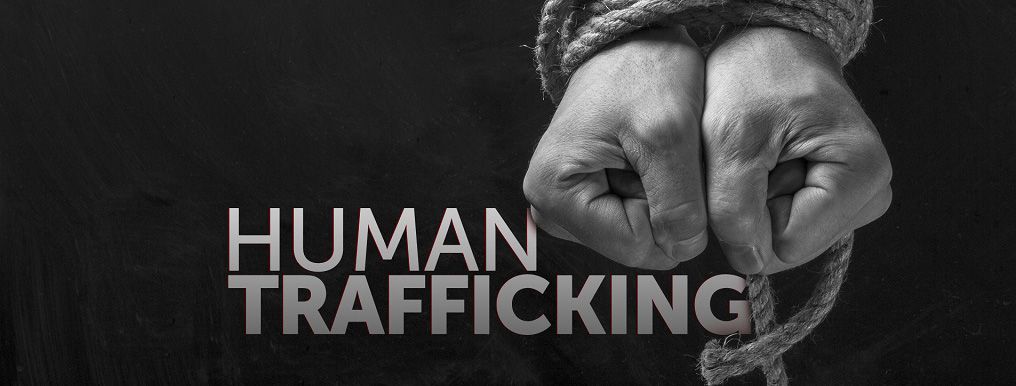
There is a public hysteria around human trafficking. In fact, according to The New Republic, concerns around human trafficking resemble a moral panic more than a rational response to a grave threat. Yes, there is human trafficking, but many experts claim the public’s response is out of proportion to the threat.
However, California takes accusations of human trafficking very seriously. Our state has even passed a revised law that increased penalties for a conviction. If you’ve been caught up in a California human trafficking crackdown, we are here for you. We have represented countless criminal defendants quite successfully, and we are prepared to provide a vigorous defense on your behalf.
California Penal Code § 236.1 covers the definition and penalties of human trafficking and the different types of crimes conducted. The perpetrator of human trafficking is someone who deprives and violates another person, the victim, to obtain services from that victim for personal gain.
The method of gaining that service is done through fraudulent and deceitful promises, to get that person into a position of compliance. Obtaining that service can also be done through violence, threats of violence and physical injury, to where the victim is compliant to the perpetrator’s wishes, to avoid being injured or worse.
California Human Trafficking Law
California Penal Code § 236.1 makes it a crime to do any of the following:
- Violate or deprive someone of personal liberty with the intent to force them to labor or perform services. (236.1(a) PC)
- Violate or deprive a person of liberty with the intent to violate one of several sex-based laws, such as pimping, pandering, or employing a minor in pornography. (236.1(b) PC)
- Induce, persuade, or cause a minor to engage in commercial sex. This also includes attempting to induce, persuade, or cause a minor to engage in commercial sex (236.1(c) PC)
Here are some common examples:
- Kidnapping a person and forcing them to perform work in one’s home.
- Abducting a child and forcing him/her to participate in pornographic videos.
- Persuading a 15-year-old to work for someone as a prostitute.
Penalties for Committing Human Trafficking in California
Under California Penal Code § 236.1(a), the punishment for those who deprive or violate the personal liberty of another, to obtain forced labor services is punished by state imprisonment for 5, 8, or 12 years, and a fine of not more than $500,000.
Under California Penal Code § 236.1(b), those who deprive another person with the intent to rape, abduct, and seduce children (§ 266), are imprisoned in state prison for 8, 14, to 20 years and a fine of $500,000 or less.
Under California Penal Code § 236.1(c), those who cause, induce, or persuade a minor person to engage in commercial sex acts, may receive a sentence of 5, 8, 12 years imprisonment and a fine of $500,000.
Based on circumstances of the crime, the penalty can be higher, up to life imprisonment along with the $500,000 fine.
If you are convicted of human trafficking, California law sets the following penalties based on the offense you were convicted of:
- If you are convicted of 236.1(a), then you can be sent to prison for 5, 8, or 12 years. You can also be fined up to $500,000.
- If convicted of 236.1(b), then you can be imprisoned for 8, 14, or 20 years and fined up to $500,000.
- If convicted of 236.1(c), then you can be imprisoned for 5, 8, or 12 years and fined up to $500,000. If you used fraud, deceit, fear, duress, threats, violence, or other coercion, you may face 15 years to life in prison and a fine up to $500,000.
These are very steep penalties and show how serious California has become at stamping out human trafficking. Persuading a minor to engage in commercial sex work, in particular, can land a person in jail for life.
Forced Labor
Trafficked people are sometimes put in menial labor situations for a “set” period to pay off the fees (with interest) for transporting them to the United States illegally. Men may be put in undercover illegal warehouse jobs, while women are put in household cleaning and cooking positions. Women may also be subjected by threats or force to offer sexual services to a certain clientele.
Sex Trafficking of Juveniles
Sex trafficking of juveniles is a global-wide crime where children can be bribed by offers of caring for a child, offering them the love they never had at home, and other persuasive tactics. Children who run away from abusive home situations are targets for these predators, as well as those who are caught alone while away from their parents on outings.
While grooming of such children may lead to them thinking they will find a better life, there is always the inherent threat of punishment if children do not comply with their “managers.”
Involvement of the FBI
The Federal Bureau of Investigation (FBI) were already at work to bring down sex trafficking crimes in Atlanta in the weeks before the recent Super Bowl, making 33 arrests ahead of the game.
Since then, during and after the Super Bowl, a total of 169 arrests have now been made in Atlanta, according to a post on 11Alive.com. Many large events of this nature are targets for selling services, as well as searching for new victims, both boys and girls.
In San Diego County, as of June 2018, there were between 8,000 to nearly 12,000 survivors of human trafficking, according to an article posted at The Coast News Group Online. Of these survivors, nearly 80 percent are United States citizens, while 11.4 percent are from Mexico.
Speak to an Experienced Defense Attorney
If you have been falsely accused of human or sex trafficking, or of obtaining services to have sex with minors, call us at once for a consultation. 619-234-2300

